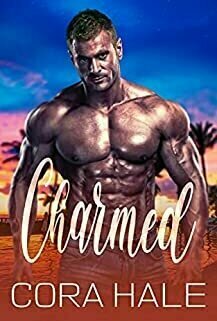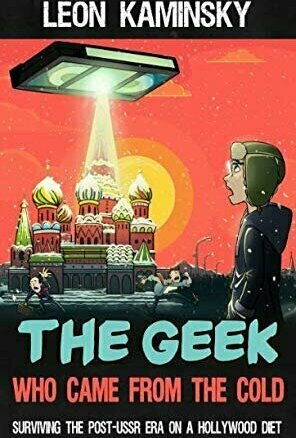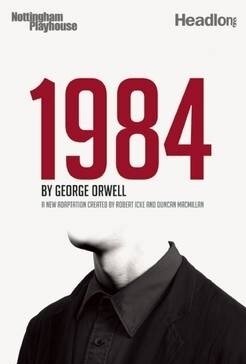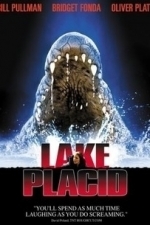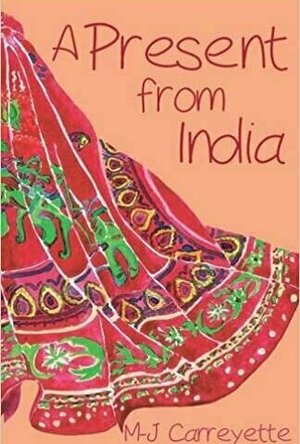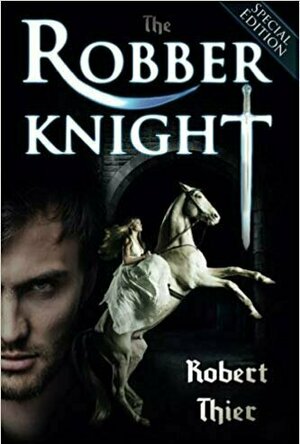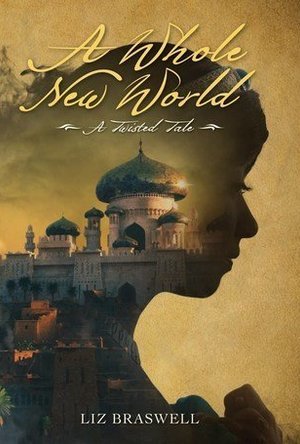Search

Pastry Chef Elite
Food & Drink and Lifestyle
App
Pastry Chef Elite is an educational cooking App developed for people who enjoy food and cooking,...
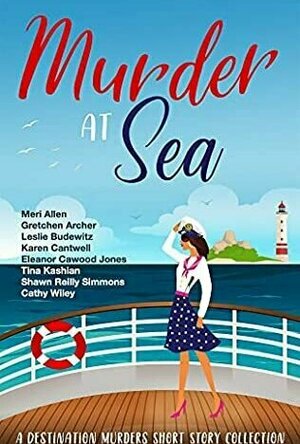
Murder at Sea
Book
Fear naut, the next Destinations Murder collection is here: Murder at Sea. Third in this...
Honest Review for Free Copy of Book
Readers should not be fooled by the title The Geek Who Came From The Cold: Surviving The Post-USSR Era On A Hollywood Diet by Leon Kaminsky has nothing to do with food or dieting at all. The “Hollywood Diet” mentioned in the title is movies, mainly those from the US. A little bit of knowledge about Russia and their policies would be helpful when reading this book but is not required.
Leon is a young boy growing up in Russia at the end of the 1900s. He has a nervous problem (possibly anxiety) and has a hard time at school and with other people in general. Leon quickly falls in love with movies, specifically those from Hollywood after seeing them for the first time. Like so many other people who are not exactly social for one reason or another, he trades social interaction for watching films. His love for movies over the years borders on the edge of obsession as he knows not only actors and directors but also the Russian’s who voice over the tapes to translate them. His daily and weekly schedule revolves around what movies are being played on TV or at the theaters.
He takes readers through the difficulty of obtaining some of the popular movies that can be found just about anywhere here in the United States. This difficulty is not only because of how much Russia censored movies from just about anywhere but because the titles are often changed as well. Leon shares his excitement and the challenges he faced to get his first VCR play and to transport his VHS collection when his family moved. He even talks about when owning a VCR was illegal in Russia and when people would give anything to have one, including offering to trade a boat for a VCR.
What I liked best was that the informative quality of the book was wonderful and the author clearly did his research (I even wondered at times if the book was based on the author’s own childhood). I appreciated the human qualities of the book, such as the struggles Leon faces at school. New facts about Russia was presented to the readers in a way that prevented anything from feeling too overly informative. What I did not like was the fact that the book ends fairly abruptly. I would have liked to see at least one chapter about after the family’s move to Germany. There were also multiple sections where it would begin on one topic and end on another, seemingly unrelated topic.
Movie fans will enjoy this book but it is recommended that they be somewhat familiar with movies from the 1980s (I think was the time period of most movies mentioned in the book, I myself am far from a movie buff at all) and newer. High school students may not be able to fully appreciate the cinematic history in this book and may feel more like a history book to them. It should also be noted as VHS tapes are already a thing of the past (I am holding on to a few to show my children in the future) upcoming generations may not know what the book is talking about without asking their parents or google. Finally, I give this book a rating of 3 out of 4. This book is very informative about a topic not many people are probably aware of. Sadly this gives it a very narrow target audience. The way the book is written makes it feel like it is an autobiography about a movie lover growing up where movies are largely controlled. The plot of the book is frequently lost through during all the movie talk.
https://www.facebook.com/nightreaderreviews
Leon is a young boy growing up in Russia at the end of the 1900s. He has a nervous problem (possibly anxiety) and has a hard time at school and with other people in general. Leon quickly falls in love with movies, specifically those from Hollywood after seeing them for the first time. Like so many other people who are not exactly social for one reason or another, he trades social interaction for watching films. His love for movies over the years borders on the edge of obsession as he knows not only actors and directors but also the Russian’s who voice over the tapes to translate them. His daily and weekly schedule revolves around what movies are being played on TV or at the theaters.
He takes readers through the difficulty of obtaining some of the popular movies that can be found just about anywhere here in the United States. This difficulty is not only because of how much Russia censored movies from just about anywhere but because the titles are often changed as well. Leon shares his excitement and the challenges he faced to get his first VCR play and to transport his VHS collection when his family moved. He even talks about when owning a VCR was illegal in Russia and when people would give anything to have one, including offering to trade a boat for a VCR.
What I liked best was that the informative quality of the book was wonderful and the author clearly did his research (I even wondered at times if the book was based on the author’s own childhood). I appreciated the human qualities of the book, such as the struggles Leon faces at school. New facts about Russia was presented to the readers in a way that prevented anything from feeling too overly informative. What I did not like was the fact that the book ends fairly abruptly. I would have liked to see at least one chapter about after the family’s move to Germany. There were also multiple sections where it would begin on one topic and end on another, seemingly unrelated topic.
Movie fans will enjoy this book but it is recommended that they be somewhat familiar with movies from the 1980s (I think was the time period of most movies mentioned in the book, I myself am far from a movie buff at all) and newer. High school students may not be able to fully appreciate the cinematic history in this book and may feel more like a history book to them. It should also be noted as VHS tapes are already a thing of the past (I am holding on to a few to show my children in the future) upcoming generations may not know what the book is talking about without asking their parents or google. Finally, I give this book a rating of 3 out of 4. This book is very informative about a topic not many people are probably aware of. Sadly this gives it a very narrow target audience. The way the book is written makes it feel like it is an autobiography about a movie lover growing up where movies are largely controlled. The plot of the book is frequently lost through during all the movie talk.
https://www.facebook.com/nightreaderreviews
Jamie (131 KP) rated 1984 Nineteen Eighty-Four in Books
Jun 4, 2017
Overwhelmingly bleak (1 more)
Stars slow and a little bit didactic
A true nightmare world, a dystopian classic
Winston is our everyman, a middle aged average male living under the heel of a totalitarian regime. His work is bland, his food is bland, his every day routine is bland. Winston is losing it, he wonders about the world that was before the party and resists in small ways. He ponders about the subtle ways that the party exerts it’s control, by perpetual war, by rewriting history, by lying so blatantly that the members of the party have to accept the lies as truth. Winston dreams of revolution and finds himself seeking out others likes him.
Nineteen Eighty-Four was not an easy ready by any means, it’s startlingly brutal. The beginning starts off rather slow as the readers gets to know Winston, the way he thinks and learns about his every day routine and are introduced to key characters. The middle of the book picks up, but it breaks up the pacing of the novel due to the fact that it essentially turns into an essay that outlines the structure of the party and the moral implications of it’s actions. While info dumps can be a bit disjointing to read, I could bear with it for this novel. The third half of the novel caught me off guard and it spun wildly out of control. I loved it, even when I found it difficult to digest. This is what made the book so brilliant, it doesn’t just tell you about right and wrong and then wrap things up nicely, the horrible reality of the book comes crashing down on both Winston and the reader’s head in full force.
The power structure of the party is just downright diabolical. I could think of any other way to describe it; the method of control, the reasons for maintaining such a strict social order, the sheer scale of the party’s reach – all of it was terrifying when taken as a whole. There were points in the second half of the novel where I had to put the book down because it was stressing me out too much, and this was a first for me. I now understand fully what folks mean when they label something as “Orwellian,” and why this novel is hailed as one of the very best of the dystopia genre. Hell, there are others that I read that I thought were bleak, but none quite to this degree. Nineteen Eighty-Four makes other books in the dystopia genre seem like lighthearted adventures novels.
The novel is extremely effective in the delivery of it’s core message about government control and humanity by creating a potential future that is harrowing, particularly because of it’s plausibility, as a warning to all. This is the type of book that will stick with me for a long time and I’m glad I finally sat down to read it.
Nineteen Eighty-Four was not an easy ready by any means, it’s startlingly brutal. The beginning starts off rather slow as the readers gets to know Winston, the way he thinks and learns about his every day routine and are introduced to key characters. The middle of the book picks up, but it breaks up the pacing of the novel due to the fact that it essentially turns into an essay that outlines the structure of the party and the moral implications of it’s actions. While info dumps can be a bit disjointing to read, I could bear with it for this novel. The third half of the novel caught me off guard and it spun wildly out of control. I loved it, even when I found it difficult to digest. This is what made the book so brilliant, it doesn’t just tell you about right and wrong and then wrap things up nicely, the horrible reality of the book comes crashing down on both Winston and the reader’s head in full force.
The power structure of the party is just downright diabolical. I could think of any other way to describe it; the method of control, the reasons for maintaining such a strict social order, the sheer scale of the party’s reach – all of it was terrifying when taken as a whole. There were points in the second half of the novel where I had to put the book down because it was stressing me out too much, and this was a first for me. I now understand fully what folks mean when they label something as “Orwellian,” and why this novel is hailed as one of the very best of the dystopia genre. Hell, there are others that I read that I thought were bleak, but none quite to this degree. Nineteen Eighty-Four makes other books in the dystopia genre seem like lighthearted adventures novels.
The novel is extremely effective in the delivery of it’s core message about government control and humanity by creating a potential future that is harrowing, particularly because of it’s plausibility, as a warning to all. This is the type of book that will stick with me for a long time and I’m glad I finally sat down to read it.

Cardiio: Heart Rate Monitor
Health & Fitness and Lifestyle
App
Cardiio helps you measure your pulse (heart rate) using your phone camera, learn how the numbers...
Steve Fearon (84 KP) rated Lake Placid (1999) in Movies
Sep 5, 2018
The Toothless Croc Adventure that bit off more than it could chew
If you are big horror fan, like I am, then you will no doubt have seen and loved Jaws at some point.
The spectacular fear of something huge and unseen in the water, a perfectly evolved marine predator capable of tremendous power and speed, with a jaw size capable of cutting you in half.
Jaws hit on a very primal fear, that there is an unreasoning, prehistoric simplicity to the shark, that reminds us that until the last few thousand years, we were just another form of food for many creatures on this planet, and that we could be again, in the right circumstances.
It is this fear that also informs our love of Zombie movies, our disgust at cannibals and keeps us watching endless episodes of dirty, tired-looking people arguing in 'The Walking Dead'.
Where Jaws created a whole genre of horror in 'Killer Shark' movies, their reptilian counterparts have had to make do with a somewhat less successful series of outings, with Alligator, Croc etc
They just haven't quite hit our imagination in the same way, whether that be because of their comical waddle on land, or having watched an excited Australian man jumping all over them on TV (RIP Steve Irwin)...
Regardless, Lake Placid is the one that most remember from recent history, and having listened to a 'Horrow Show' Podcast on the film recently, I mentioned to my better half I wouldn't mind seeing it again, to see if it is as bad as it sounded.
Well last night, said better half suggested we watch it and boy oh boy...
So first off, Brendan Gleeson was by far the best thing about this movie, his one liners and grumpy demeanor were, for long periods, the best thing about this movie, shortly followed by the hilarious Betty White.
Stan Winstone, legendary physical creature effects maestro turns in some great stuff, and when they are dealing withe the physical creature, it is very effective but all too often they resort to CGI, which is passable but still tends to take you out of the moment..
Oliver Platt's casting as a crocodile expert playboy is amusing at first, then confusing and eventually just...well not laughable exactly as it isnt very funny, but strange certainly.
The movie languishes for long periods, focusing on the incredibly inert chemistry between leading lady Fonda, and wooden cardboard cut out Pullman, giving you poorly written rom com scripts where we signed up to see a giant Croc eat people.
Long story short, this movie is light on tension and action, heavy on clumsy exposition and strange casting choices, and it a poor relation to Jaws, which is more worthy of your time.
The spectacular fear of something huge and unseen in the water, a perfectly evolved marine predator capable of tremendous power and speed, with a jaw size capable of cutting you in half.
Jaws hit on a very primal fear, that there is an unreasoning, prehistoric simplicity to the shark, that reminds us that until the last few thousand years, we were just another form of food for many creatures on this planet, and that we could be again, in the right circumstances.
It is this fear that also informs our love of Zombie movies, our disgust at cannibals and keeps us watching endless episodes of dirty, tired-looking people arguing in 'The Walking Dead'.
Where Jaws created a whole genre of horror in 'Killer Shark' movies, their reptilian counterparts have had to make do with a somewhat less successful series of outings, with Alligator, Croc etc
They just haven't quite hit our imagination in the same way, whether that be because of their comical waddle on land, or having watched an excited Australian man jumping all over them on TV (RIP Steve Irwin)...
Regardless, Lake Placid is the one that most remember from recent history, and having listened to a 'Horrow Show' Podcast on the film recently, I mentioned to my better half I wouldn't mind seeing it again, to see if it is as bad as it sounded.
Well last night, said better half suggested we watch it and boy oh boy...
So first off, Brendan Gleeson was by far the best thing about this movie, his one liners and grumpy demeanor were, for long periods, the best thing about this movie, shortly followed by the hilarious Betty White.
Stan Winstone, legendary physical creature effects maestro turns in some great stuff, and when they are dealing withe the physical creature, it is very effective but all too often they resort to CGI, which is passable but still tends to take you out of the moment..
Oliver Platt's casting as a crocodile expert playboy is amusing at first, then confusing and eventually just...well not laughable exactly as it isnt very funny, but strange certainly.
The movie languishes for long periods, focusing on the incredibly inert chemistry between leading lady Fonda, and wooden cardboard cut out Pullman, giving you poorly written rom com scripts where we signed up to see a giant Croc eat people.
Long story short, this movie is light on tension and action, heavy on clumsy exposition and strange casting choices, and it a poor relation to Jaws, which is more worthy of your time.
BookInspector (124 KP) rated A Present from India in Books
Sep 24, 2020
When I started reading this book, it did not hook me, and that remained till the end of the book. The main characters of the book were mother whose name was Eva and her half Indian, half English daughter Dee. I really admired Eva’s character in this book. She was like an old wise owl, I liked that, at least now she was wise and made good decisions.(what I wouldn’t say about her study days) Unfortunately I found Dee quite stupid and annoying, with her silly decisions and being stubborn with those not logical wishes she makes in the book. Because of these real life character features I found them both to be very realistic and believable, there are many mixed marriages in the UK and I liked the diversity of the characters.
As it was mentioned in the description, there are two stories told of two generations. It is the trip to India which is happening at present and a time spent in Moscow in 1977. I really loved reading about Eva's time in Moscow; it was really interesting to me. I enjoyed all the details author told about Moscow. I think that's where authors experience comes in, she studied in Moscow during seventies herself, that's why she was able to portray the city and the atmosphere of those days quite accurate. The relationship Chandra was having with Eva was really complicated and for me it kept the suspense going, that's why I used to get excited once those chapters used to come up. Unfortunately the Indian trip was not very interesting to read for me. I think in many places there was too much detail which was not necessary. What drinks they had and what food they ate, I was not very interested in that. The characters wanted to see real India, but what was written in the book was far from the real India. Living in a hotel and travelling first class is not real India experience. It seemed like a tour which most probably author had, and this was the way to share the experience. As person who saw and lived in everyday Indian conditions, I can assure, it’s not like it was in the book. Even though I didn't really enjoy the parts of India voyage, it made me want to take my mother there. I liked the relationship which Eva and Dee shared during that trip.
I liked the writing style of this novel; it has this lovely English way: refined and polite, avoiding conflict. I am a big fan of short chapters, or long chapters divided into smaller, so the length of the chapters was not my favourite part in this book as well. They were long and too boring sometimes. Another thing I really enjoyed, was the ending of this book. It was unexpected to me and made sense why the novel was written in the way it was. So to conclude, if you never visited India and have interest in Soviet history, you will enjoy this book and will find some exotic places and interesting way of living in 1970ties Russia.
As it was mentioned in the description, there are two stories told of two generations. It is the trip to India which is happening at present and a time spent in Moscow in 1977. I really loved reading about Eva's time in Moscow; it was really interesting to me. I enjoyed all the details author told about Moscow. I think that's where authors experience comes in, she studied in Moscow during seventies herself, that's why she was able to portray the city and the atmosphere of those days quite accurate. The relationship Chandra was having with Eva was really complicated and for me it kept the suspense going, that's why I used to get excited once those chapters used to come up. Unfortunately the Indian trip was not very interesting to read for me. I think in many places there was too much detail which was not necessary. What drinks they had and what food they ate, I was not very interested in that. The characters wanted to see real India, but what was written in the book was far from the real India. Living in a hotel and travelling first class is not real India experience. It seemed like a tour which most probably author had, and this was the way to share the experience. As person who saw and lived in everyday Indian conditions, I can assure, it’s not like it was in the book. Even though I didn't really enjoy the parts of India voyage, it made me want to take my mother there. I liked the relationship which Eva and Dee shared during that trip.
I liked the writing style of this novel; it has this lovely English way: refined and polite, avoiding conflict. I am a big fan of short chapters, or long chapters divided into smaller, so the length of the chapters was not my favourite part in this book as well. They were long and too boring sometimes. Another thing I really enjoyed, was the ending of this book. It was unexpected to me and made sense why the novel was written in the way it was. So to conclude, if you never visited India and have interest in Soviet history, you will enjoy this book and will find some exotic places and interesting way of living in 1970ties Russia.
Kara Skinner (332 KP) rated The Robber Knight in Books
Sep 10, 2019
When you are fighting for the freedom of your people, falling in love with your enemy is not a great idea. Or is it? Ayla has to defend her castle and her people all on her own, with nobody to help her but a dark warrior she hates with all her heart.
Sir Reuben, the dreaded robber knight, has long been Ayla’s deadliest enemy. He has prayed on her and her people ever since her father fell ill, and she swore he would hang for his crimes. Now they are both trapped in her castle as the army of a far greater enemy approaches, and they have only one chance: stand together, or fall.
This book wasn’t bad, honestly. I’m a huge fan of historical fiction, and it had been awhile since I’ve read a medieval love story, so that was a nice change of pace.
The author is a historian, so there are a lot of little things in this book that you don’t see in a lot of other historical romance books. For instance,you can’t pull out arrows because there are often barbs attached to cause fatal wounds if pulled out. I did like learning about all of these facts. But sometimes Thier lets the historian in him gets the best of him, but more on that later.
Lady Ayla was a pretty interesting character. Headstrong and wise for her years, she is very noble and progressive. She has all of the makings for a great leader– with the exception of knowledge. I loved how kind and committed she was to her people and I love the fact that she has some spunk. I mean, if I’m getting robbed in the forest by this random stranger, then I hope I would swear him out too (of course, if I could beat him up and get away, then that’s even better, but Ayla doesn’t have much self-defense skills). But there were many times that she was annoying, like her insistence on being near battles, even before she started treating the sick. And how she tried to manage Sir Isenbard during battle. She had called on him for help because he was an experienced knight, and now she was questioning his commands and strategies in the heat of battle!
Mostly, though, I really did like Ayla. She defines the idea of nobility. With war inevitable, she’s willing to ride personally to the edges of her land to warn her subjects and she is always at the outskirts of battle to help care for the wounded. She invites everyone into the castle for their safety and rations herself as well as the others to conserve food. She’s even willing to corrupt herself to save her people.
Reuben is an excellent character as well, although it did take me awhile to like him. In the beginning he fell a little flat. It’s clear that he used to be a knight but something happened and now he robs people for his own greed. A near-death experience and being saved by Lady Ayla reawakens the humanity in him. And apparently also some depth.
In the beginning of the book he spends a lot of his time admiring his loot and laughing about his victims, who thought they had a right to steal from him. But that’s all he does. We have no real insight into his character or backstory until after he’s in Ayla’s care. Only then are there hints of a bad history where he had been arrested many times, been tortured, and had at one point been a member of respectable society. If it weren’t for the fact that I liked Ayla’a character and the plot so far, I probably would have stopped reading.
Thier is a writer who has really good potential in becoming a great romance writer, especially for historical fiction. The plots have some unique twists that are augmented by his knowledge of history and after Reuben’s character shaped up, he was an excellent love interest. But there is one huge problem with this story: the footnotes.
There are so many footnotes throughout most of the book that I feel like I’m reading a history textbook, which is not good when I usually read romance novels to take a break from homework. Not only are they distracting and unnecessary, but they are also rude and condescending. Sure, sometimes they were useful, like in explaining the references to the seven princes of hell. Another one was a pretty funny anecdote about how one of his readers had actually confirmed that lard burns and that burning arrows work because they had actually done it. There is also a lot of wit throughout the footnotes which is pretty amusing. But most of the time, they were annoying.
For instance, Robert Thier thought it was necessary to include a footnote about how witches were considered bad during medieval times. Seriously? Even if someone failed history, we know that witches are not considered fine, upstanding citizens. Or maybe he thinks all of us have been locked in our rooms with no books, internet or television for our entire lives and for the month of October we all miraculously fell into a coma so we couldn’t see the giant blow-up witch in the neighbor’s yard. And then we’d all wake up singing Christmas carols after the month long coma without a care in the world because this happens every year so we don’t know what a witch is. (I’m developing a conspiracy theory about how these strange comas was caused by witchcraft.)
Maybe Thier assumed that instead of us thinking Reuben was scared of witches when he wondered if Ayla was one, we just thought he was commenting on how much Ayla looked like Sandra Bullock.
And one of the footnotes was just plain offensive. Here is the line of text that the footnote is attached to: “Heel! Abominable villain! You dare defy me?” (page 74)
Now, here’s the footnote: “Sorry to disappoint the ladies, but this doesn’t refer to high heels. It is a medieval term for a very nasty person.”
Excuse me? Did you just assume that I thought it meant high heels and that would make me excited? What world do you live in?
Apparently he thinks “the ladies” are so dumb that we are incapable of taking context clues and we immediately think everything relates back to fashion. Maybe I didn’t know it meant “very nasty person”, but it’s pretty clear it’s a swear or insult of sometime, not a freaking Jimmy Choo. Does he just imagine us thinking high heel every time we hear the word?
“She broke his nose with the heel of her hand.” Oh. High heel!
“Heel, fido! I said heel!” Oh. High heel!
“It will take one or two days for your cut to heal.” Oh. High heel! (Because if he thinks we don’t understand the difference between uncomfortable footwear and an insult, then he probably thinks we can’t spell, either).
But hey, at least Robert Thier thinks women can memorize stuff, because the footnote links stop as the vocabulary is repeated instead of new terms being introduced.
Aside from the footnotes, I really do like this book, and I can’t wait to read the second part of it, which I’ll read soon. Thier still has a long way to go, but I think after he has more experience, he’ll write some great books.
Sir Reuben, the dreaded robber knight, has long been Ayla’s deadliest enemy. He has prayed on her and her people ever since her father fell ill, and she swore he would hang for his crimes. Now they are both trapped in her castle as the army of a far greater enemy approaches, and they have only one chance: stand together, or fall.
This book wasn’t bad, honestly. I’m a huge fan of historical fiction, and it had been awhile since I’ve read a medieval love story, so that was a nice change of pace.
The author is a historian, so there are a lot of little things in this book that you don’t see in a lot of other historical romance books. For instance,you can’t pull out arrows because there are often barbs attached to cause fatal wounds if pulled out. I did like learning about all of these facts. But sometimes Thier lets the historian in him gets the best of him, but more on that later.
Lady Ayla was a pretty interesting character. Headstrong and wise for her years, she is very noble and progressive. She has all of the makings for a great leader– with the exception of knowledge. I loved how kind and committed she was to her people and I love the fact that she has some spunk. I mean, if I’m getting robbed in the forest by this random stranger, then I hope I would swear him out too (of course, if I could beat him up and get away, then that’s even better, but Ayla doesn’t have much self-defense skills). But there were many times that she was annoying, like her insistence on being near battles, even before she started treating the sick. And how she tried to manage Sir Isenbard during battle. She had called on him for help because he was an experienced knight, and now she was questioning his commands and strategies in the heat of battle!
Mostly, though, I really did like Ayla. She defines the idea of nobility. With war inevitable, she’s willing to ride personally to the edges of her land to warn her subjects and she is always at the outskirts of battle to help care for the wounded. She invites everyone into the castle for their safety and rations herself as well as the others to conserve food. She’s even willing to corrupt herself to save her people.
Reuben is an excellent character as well, although it did take me awhile to like him. In the beginning he fell a little flat. It’s clear that he used to be a knight but something happened and now he robs people for his own greed. A near-death experience and being saved by Lady Ayla reawakens the humanity in him. And apparently also some depth.
In the beginning of the book he spends a lot of his time admiring his loot and laughing about his victims, who thought they had a right to steal from him. But that’s all he does. We have no real insight into his character or backstory until after he’s in Ayla’s care. Only then are there hints of a bad history where he had been arrested many times, been tortured, and had at one point been a member of respectable society. If it weren’t for the fact that I liked Ayla’a character and the plot so far, I probably would have stopped reading.
Thier is a writer who has really good potential in becoming a great romance writer, especially for historical fiction. The plots have some unique twists that are augmented by his knowledge of history and after Reuben’s character shaped up, he was an excellent love interest. But there is one huge problem with this story: the footnotes.
There are so many footnotes throughout most of the book that I feel like I’m reading a history textbook, which is not good when I usually read romance novels to take a break from homework. Not only are they distracting and unnecessary, but they are also rude and condescending. Sure, sometimes they were useful, like in explaining the references to the seven princes of hell. Another one was a pretty funny anecdote about how one of his readers had actually confirmed that lard burns and that burning arrows work because they had actually done it. There is also a lot of wit throughout the footnotes which is pretty amusing. But most of the time, they were annoying.
For instance, Robert Thier thought it was necessary to include a footnote about how witches were considered bad during medieval times. Seriously? Even if someone failed history, we know that witches are not considered fine, upstanding citizens. Or maybe he thinks all of us have been locked in our rooms with no books, internet or television for our entire lives and for the month of October we all miraculously fell into a coma so we couldn’t see the giant blow-up witch in the neighbor’s yard. And then we’d all wake up singing Christmas carols after the month long coma without a care in the world because this happens every year so we don’t know what a witch is. (I’m developing a conspiracy theory about how these strange comas was caused by witchcraft.)
Maybe Thier assumed that instead of us thinking Reuben was scared of witches when he wondered if Ayla was one, we just thought he was commenting on how much Ayla looked like Sandra Bullock.
And one of the footnotes was just plain offensive. Here is the line of text that the footnote is attached to: “Heel! Abominable villain! You dare defy me?” (page 74)
Now, here’s the footnote: “Sorry to disappoint the ladies, but this doesn’t refer to high heels. It is a medieval term for a very nasty person.”
Excuse me? Did you just assume that I thought it meant high heels and that would make me excited? What world do you live in?
Apparently he thinks “the ladies” are so dumb that we are incapable of taking context clues and we immediately think everything relates back to fashion. Maybe I didn’t know it meant “very nasty person”, but it’s pretty clear it’s a swear or insult of sometime, not a freaking Jimmy Choo. Does he just imagine us thinking high heel every time we hear the word?
“She broke his nose with the heel of her hand.” Oh. High heel!
“Heel, fido! I said heel!” Oh. High heel!
“It will take one or two days for your cut to heal.” Oh. High heel! (Because if he thinks we don’t understand the difference between uncomfortable footwear and an insult, then he probably thinks we can’t spell, either).
But hey, at least Robert Thier thinks women can memorize stuff, because the footnote links stop as the vocabulary is repeated instead of new terms being introduced.
Aside from the footnotes, I really do like this book, and I can’t wait to read the second part of it, which I’ll read soon. Thier still has a long way to go, but I think after he has more experience, he’ll write some great books.
Lottie disney bookworm (1056 KP) rated A Whole New World in Books
Aug 16, 2019
Review by Disney Bookworm
“What if Aladdin had never found the lamp?”
OK so I am going to start off this review with a really pedantic comment and I know I am being petty and that this will almost definitely end in a rant but… he does find the lamp! Of course he does! Aladdin is the diamond in the rough! He is literally the only one who can find the lamp. If he didn’t find the lamp nothing would happen: Jasmine would probably grow old with her tiger; Jafar would carry on hypnotising the Sultan; Aladdin would probably wind up arrested and this would be the shortest twisted tale in history.
*Ahem*
So, Aladdin finds the lamp. Let’s move past it, because if you have read my other reviews, you will know I love Liz Braswell: her twisted tales always wind up being my favourites as she always brings something completely unexpected to the novels. In the circumstances, I can forgive the tagline.
This review of “A Whole New World” comes at a time where Aladdin is everywhere: the live action movie was released in the UK just over a month ago and, I for one, loved it! With this in mind, I just had to re-read this twisted tale and shout about the wholly different Agrabah that it presents to the reader.
Braswell’s Agrabah is a raw, dirty, troubled cousin of the Agrabah we all know and love. I struggle to comprehend exactly how the movies did it, because both showed starving children, but we found ourselves simultaneously accepting and glossing over the poverty of the street rats. We have no such option in “A Whole New World”.
From starving infants; old men shovelling camel dung for coins; to Aladdin’s own mother dying of a wasting disease: this novel takes no prisoners in the Quarter of the Street Rats. However, those in the Palace remain blind to the struggles of the poor, with the Sultan playing with his golden toys whilst some of his citizens have no food or clean water.
The plight of the Agrabah people creates an undercurrent of resentment that runs all the way through Aladdin and Jasmine’s story. It is also a clear indicator of the identity of this novel: Braswell has taken all the romanticism of the familiar story and buried it in her own cave of wonders, leaving behind a highly political but incredibly powerful story.
The twisted tale starts off on a similar vein to both movies, boy meets girl, boy rescues girl from hand severing businessman, boy winds up arrested and transported to a creepy cave where he finds an old lamp, boy’s monkey can’t keep his hands to himself and boy is left clinging on for his life at the entrance to said creepy cave. However, in this version, when Jafar steps on Aladdin’s fingers to prevent his escape, Abu doesn’t grab the lamp! How will Aladdin escape now?
As is to be expected from Braswell’s novels, the characters are phenomenal. Aladdin is the proud, eternal optimist that we recognise but with a strong ethical viewpoint that is introduced by the inclusion of his mother as a character.
Creating a new character, particularly Aladdin’s mother, could simply be a tactic to give some history to the charming thief. However, Braswell uses the matriarch to add depth to Aladdin: she tells him “don’t let how poor you are, decide who you are…you can choose to be something more”.
This is ultimately the lesson the genie would teach Aladdin if they were to meet and so I think it is very clever of Braswell to keep this element of Aladdin’s character. It allows us to witness Aladdin’s pride and strength through these instilled virtues: he has even lost friends over his views of when he considers it acceptable to be a thief.
Although I wouldn’t consider the genie a main character in this tale (he doesn’t get as much airtime as in the films): he remains a funny and flippant sidekick for the most part. However, in keeping with the tone of “A Whole New World”, he does use this humour to provoke our thoughts. The genie and Braswell divulge that there was once a whole race of djinn who have since died out. The genie has lost his home, his wife and his freedom and so, he rightly asks, who would stay sane under those conditions?
Jafar; Mr dark and twisty himself, is a whole other level of evil in this twisted tale. He does present some of the characteristics of the movie villain: power mad, desperate for everyone to love him and all that jazz; however, he also tortures the genie and plans to break the laws of magic in order to create an army of the dead. It’s all very game of thrones all of a sudden!
I know what you’re thinking: what about Jasmine? Surely, she isn’t all dark and twisty as well? The girl looks good in turquoise baggy trousers for goodness sakes!
Jasmine begins her journey as the typical naïve, sheltered princess she is always portrayed as: possessing no knowledge of the price of food or the struggles of her own people. However, Braswell manages to make even the live-action Jasmine appear over-dramatic and petty: she isn’t resisting marriage just because she doesn’t fancy random foreign prince number 3; she is resisting becoming a “baby making machine” and signing herself up to an early grave.
“A princess among men”, Jasmine and the reader soon realise that she has to step forward and become the hero of this tale. This is no small ask for someone who has never led an army or witnessed death before. Nonetheless, Jasmine is clearly up to the task: this is no weak princess trapped in an hourglass of sand, waiting to be rescued by a man. This is a Sultana!
The story of Aladdin typically conjures up images of love, magic carpets and romantic duets. Liz Braswell’s story of Agrabah does orbit around love, how could it not? However, “A Whole New World” explores the shades of grey in life: Street rats are not always bad, Princesses are not always good and magic is not always the solution. This is not a tale of love; it is a tale of finding strength in unlikely places; it is a tale that teaches us you don’t need magic to have a happy ending.
OK so I am going to start off this review with a really pedantic comment and I know I am being petty and that this will almost definitely end in a rant but… he does find the lamp! Of course he does! Aladdin is the diamond in the rough! He is literally the only one who can find the lamp. If he didn’t find the lamp nothing would happen: Jasmine would probably grow old with her tiger; Jafar would carry on hypnotising the Sultan; Aladdin would probably wind up arrested and this would be the shortest twisted tale in history.
*Ahem*
So, Aladdin finds the lamp. Let’s move past it, because if you have read my other reviews, you will know I love Liz Braswell: her twisted tales always wind up being my favourites as she always brings something completely unexpected to the novels. In the circumstances, I can forgive the tagline.
This review of “A Whole New World” comes at a time where Aladdin is everywhere: the live action movie was released in the UK just over a month ago and, I for one, loved it! With this in mind, I just had to re-read this twisted tale and shout about the wholly different Agrabah that it presents to the reader.
Braswell’s Agrabah is a raw, dirty, troubled cousin of the Agrabah we all know and love. I struggle to comprehend exactly how the movies did it, because both showed starving children, but we found ourselves simultaneously accepting and glossing over the poverty of the street rats. We have no such option in “A Whole New World”.
From starving infants; old men shovelling camel dung for coins; to Aladdin’s own mother dying of a wasting disease: this novel takes no prisoners in the Quarter of the Street Rats. However, those in the Palace remain blind to the struggles of the poor, with the Sultan playing with his golden toys whilst some of his citizens have no food or clean water.
The plight of the Agrabah people creates an undercurrent of resentment that runs all the way through Aladdin and Jasmine’s story. It is also a clear indicator of the identity of this novel: Braswell has taken all the romanticism of the familiar story and buried it in her own cave of wonders, leaving behind a highly political but incredibly powerful story.
The twisted tale starts off on a similar vein to both movies, boy meets girl, boy rescues girl from hand severing businessman, boy winds up arrested and transported to a creepy cave where he finds an old lamp, boy’s monkey can’t keep his hands to himself and boy is left clinging on for his life at the entrance to said creepy cave. However, in this version, when Jafar steps on Aladdin’s fingers to prevent his escape, Abu doesn’t grab the lamp! How will Aladdin escape now?
As is to be expected from Braswell’s novels, the characters are phenomenal. Aladdin is the proud, eternal optimist that we recognise but with a strong ethical viewpoint that is introduced by the inclusion of his mother as a character.
Creating a new character, particularly Aladdin’s mother, could simply be a tactic to give some history to the charming thief. However, Braswell uses the matriarch to add depth to Aladdin: she tells him “don’t let how poor you are, decide who you are…you can choose to be something more”.
This is ultimately the lesson the genie would teach Aladdin if they were to meet and so I think it is very clever of Braswell to keep this element of Aladdin’s character. It allows us to witness Aladdin’s pride and strength through these instilled virtues: he has even lost friends over his views of when he considers it acceptable to be a thief.
Although I wouldn’t consider the genie a main character in this tale (he doesn’t get as much airtime as in the films): he remains a funny and flippant sidekick for the most part. However, in keeping with the tone of “A Whole New World”, he does use this humour to provoke our thoughts. The genie and Braswell divulge that there was once a whole race of djinn who have since died out. The genie has lost his home, his wife and his freedom and so, he rightly asks, who would stay sane under those conditions?
Jafar; Mr dark and twisty himself, is a whole other level of evil in this twisted tale. He does present some of the characteristics of the movie villain: power mad, desperate for everyone to love him and all that jazz; however, he also tortures the genie and plans to break the laws of magic in order to create an army of the dead. It’s all very game of thrones all of a sudden!
I know what you’re thinking: what about Jasmine? Surely, she isn’t all dark and twisty as well? The girl looks good in turquoise baggy trousers for goodness sakes!
Jasmine begins her journey as the typical naïve, sheltered princess she is always portrayed as: possessing no knowledge of the price of food or the struggles of her own people. However, Braswell manages to make even the live-action Jasmine appear over-dramatic and petty: she isn’t resisting marriage just because she doesn’t fancy random foreign prince number 3; she is resisting becoming a “baby making machine” and signing herself up to an early grave.
“A princess among men”, Jasmine and the reader soon realise that she has to step forward and become the hero of this tale. This is no small ask for someone who has never led an army or witnessed death before. Nonetheless, Jasmine is clearly up to the task: this is no weak princess trapped in an hourglass of sand, waiting to be rescued by a man. This is a Sultana!
The story of Aladdin typically conjures up images of love, magic carpets and romantic duets. Liz Braswell’s story of Agrabah does orbit around love, how could it not? However, “A Whole New World” explores the shades of grey in life: Street rats are not always bad, Princesses are not always good and magic is not always the solution. This is not a tale of love; it is a tale of finding strength in unlikely places; it is a tale that teaches us you don’t need magic to have a happy ending.
